#Ancient Thebes
Explore tagged Tumblr posts
Note
Hi there! I've really enjoyed your blog-- there's a lot of good information on it. In fact, I just wrote a novel set in ancient Thebes, set in 335 BCE, right before Alexander's attack. However, I'm a little scared to write the sequel, because Alex is going to show up in it as a major character. He is SO famous, and there's so many books about him, that I hardly know where to begin.
So, do you have any specific books you recommend, like any good starter bios or anything else that would be good for this specific setting? (Specifically against the destruction of Thebes and right before the invasion of Persia.)
Thank you so much!
Some Useful Bibliography on Alexander (and Thebes)
Thank you! And sorry for the delay. The queries in my inbox tend to be feast or famine. LOL
In terms of information on Alexander, I would start with the brand new Cambridge Companion to Alexander the Great, edited by Daniel Ogden. It has many of the leading scholars. On Alexander and the Greeks in particular, see my dear friend Borja Antela’s chapter. This is now what I’d consider the best intro resource on Alexander for the interested non-specialist, especially as it’s reasonably priced. The bibliography will help a lot. For Macedonia itself, Carol Thomas has Alexander and His World (which I’ve used teaching) and Carol King has Ancient Macedonia. Both are good, one-book introductions.
If you’ve not already, you’ll want to consult Mark Munn’s chapter “Thebes and Central Greece” in The Greek World in the Fourth Century, Larry Tritle, ed. Paul Cartledge also has a book Thebes: The Forgotten City of Ancient Greece, but he’s a Spartan specialist. Lately, publishers have had him write on other subjects—not always to good effect, as per his book on Alexander, imo. But I’ve not read this one so can’t comment. I think Thebes is closer to his usual bailiwick.
James Romm did a book The Sacred Band., although like Cartledge Romm is all over the place. Same cautions apply. And I’ll also offer the counter-proposal that the band was not pairs of lovers, by David Leitao, "The Legend of the Sacred Band," in The Sleep of Reason by Martha Nussbaum and Juha Sihvola, eds. His view is not a homophobic diss; it’s a source problem. Plutarch is our sole source for the lovers bit, and he’s notoriously unreliable on some facts, especially when he has an ulterior message.
The more I study Plutarch, the less I trust him. LOL
Last, another friend and colleague, Jenn Finn has written a bang-up chapter on the destructions of both Thebes and Persepolis, for the upcoming collection I edited, so I got a preview. “Urbicide, Memory Sanctions, and the Perso-Macedonian Dynasty.” I’m not sure when the collection will be out, but certainly not before late 2024, and more likely 2025. She might be willing to share the draft, however, if you need it immediately. She’s at Loyola U. in Chicago. As always, Jenn does fantastic work.
#asks#alexander the great#alexander the great bibliography#ancient Thebes#Greek Thebes#The Sacred Band#books on Alexander the Great#ancient macedonia#ancient greece#Classics#tagamemnon
24 notes
·
View notes
Text
Hurghada Excursions : The Gateway to Egypt's Coastal Wonders
Nestled along the enchanting Red Sea coast, Hurghada emerges as a beacon of adventure and tranquility, beckoning travelers to its sun-drenched shores. From the mesmerizing depths of its azure waters to the timeless echoes of ancient civilizations, Hurghada offers a tapestry of experiences that cater to the dreams of every explorer. Let's embark on a journey through the most captivating excursions in Hurghada, designed to enrich your travels with unforgettable memories.
Aqua Magic: Snorkeling and Diving Adventures
Embark on an underwater odyssey in the crystal-clear waters of the Red Sea. Hurghada's snorkeling and diving excursions unveil a world brimming with vibrant coral reefs and an abundance of marine life. Guided by seasoned professionals, these underwater escapades promise safety and ecological respect while offering a glimpse into the aquatic wonders beneath the waves. The kaleidoscopic beauty of the corals and the playful dance of tropical fish around you will be a sight to treasure forever.
Desert Wanderlust: Safari Expeditions
Beyond the coastline, the allure of the desert beckons. Safari tours offer an exhilarating journey across the golden sands, leading adventurers to the heart of the Eastern Desert. Experience the warmth of Bedouin hospitality in a traditional village, where the rhythm of desert life unfolds before your eyes. From camel treks to sunset views that paint the sky in fiery hues, the desert safari is a symphony of natural beauty and cultural immersion.
Echoes of Antiquity: Luxor Day Trips
A pilgrimage to Luxor, the "World's Greatest Open-Air Museum," offers a profound connection to Egypt's glorious past. Temples, tombs, and monuments whisper tales of pharaohs and deities along the banks of the Nile. The journey from Hurghada to Luxor reveals the magnificence of the Valley of the Kings, the grandeur of the Temple of Karnak, and the mystical allure of ancient Thebes. Each step through these historic landscapes is a step through time, offering insights into a civilization that shaped the world.
Isle of Bliss: Giftun Islands Excursions
For those seeking solace in the lap of nature, the Giftun Islands are a sanctuary of peace. Pristine beaches, azure waters, and untouched natural beauty offer a respite from the world beyond. Whether you wish to bask in the sun, delve into the vibrant underwater life through snorkeling, or simply let the sea's rhythm soothe your soul, the Giftun Islands are a slice of paradise awaiting your footprints.
Embracing Hurghada's Majesty
Hurghada excursions offer a mosaic of experiences, each uniquely captivating and deeply enriching. Whether it’s the thrill of diving into the deep blue, the serenity of desert expanses, the awe of ancient ruins, or the idyllic peace of island retreats, Hurghada stands as a testament to the beauty and diversity of Egypt's landscapes and heritage.
Booking these excursions with reputable providers not only ensures a seamless experience but also guarantees that your adventures contribute positively to the local ecosystem and communities. As you leave Hurghada, the memories of your excursions will linger, a constant call to return to this land where adventure and tranquility coexist in perfect harmony.
In Hurghada, every day is an invitation to adventure, to explore beyond the horizon, and to embrace the extraordinary. Are you ready for the Adventure? Excursions
#Hurghada#Red Sea coast#Adventure#Tranquility#Snorkeling#Diving#Coral reefs#Marine life#Desert safari#Bedouin hospitality#Luxor day trips#Valley of the Kings#Temple of Karnak#Giftun Islands#Ancient Thebes#Ecological respect#Cultural immersion#Natural beauty#Egypt's heritage#Reputable providers
1 note
·
View note
Text
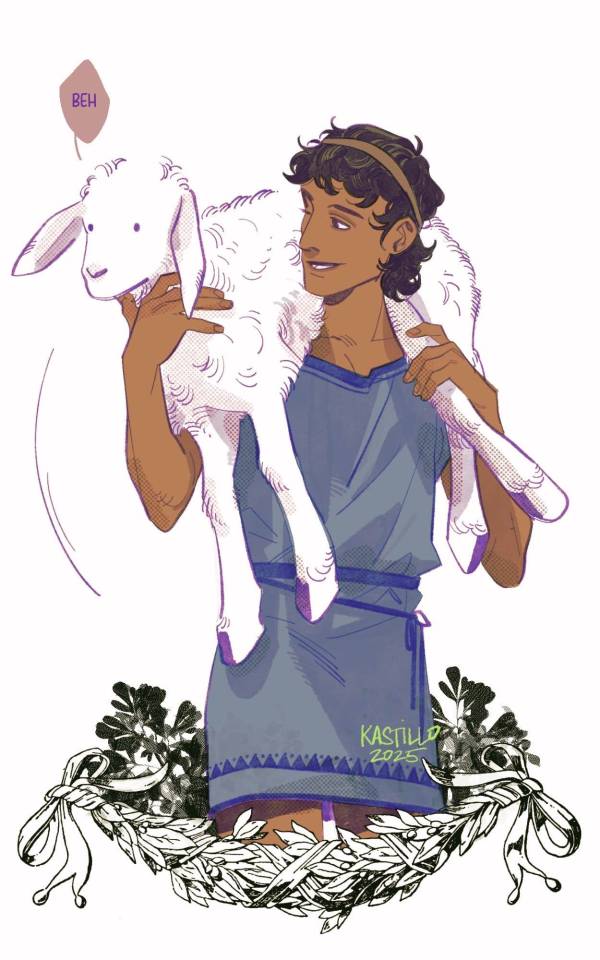
paris of troy! during those years he was a shepherd.
I was reading cartledge's book on thebes and every now and then the spartan focuses wrt to the pantheon of gods comes up. sparta has nothing to do with this except for where it does, but apollo karneios was discussed and that got my attention, which circled back to paris, and then I started thinking about the paris + apollo link
I also started thinking about narrative rejections bc paris has a funky absence in the iliad that's giving a kind of...a vibe. your parents shouldn't have had you, the story doesn't want you around, but oh boy are you there anyway, manifested into existence. no matter what, doom must manifest in flesh form. it's a narrative necessity, the actual incident (the judgement) is secondary.

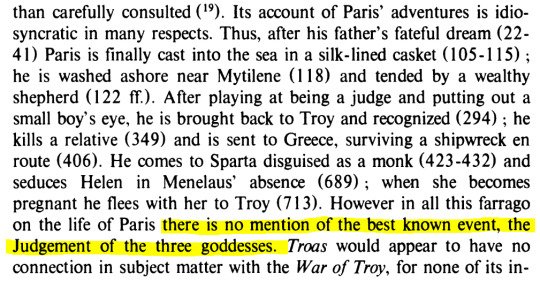
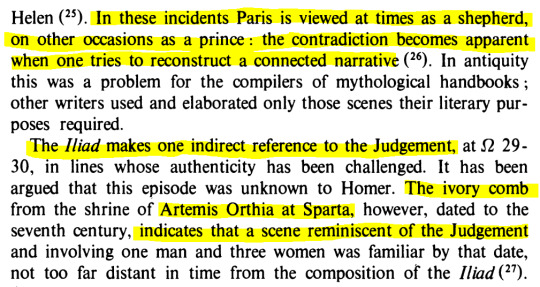

The Judgement of Paris in Later Byzantine Literature, E. M. Jeffreys
weird! love it! almost (but not quite) reminds me of troilos' murder at achilles' hands lurking in the guts of the iliad. it's there, even when it's not. more importantly tho: sheep. I miss working on a farm with sheep and goats and cows and--
#a lot of the early stuff with paris reminds me of geta of roman emperor fame tbh like goddamn what the hell is going ON there#anyway. last year i wrote the script for a comic about paris and what it means to get body hijacked by a plot older than you#very oedipus to be absolutely damned by all forces before you were born. which also means i can make this about thebes. and if#i can make it about thebes then it's ALSO about rome bc rome and thebes are sister cities#christ i'd love to find the time to actually draw it#ancient greece tag#<< eventually going to update the previous greece tag to all fit under this one. eventually. some day#god. anyway. 'readers are given no reason for his vehement insistence on leaving troy' aughGHGHHHHHHHH#drawing tag
1K notes
·
View notes
Text
New update (August 1st):
A few weeks have gone by and I’ve been working (on my one day a week during the summer hols - I’m a teacher) on the section where Odysseus might have gone with Menelaus instead. And it turns out Menelaus rather adores Odysseus so it’s quite difficult for him to leave! But it’s given me a chance to weave even more small myth references and proper myth stories in. I’m doing my best to keep it Homeric and not give in to my sense of humour, but I’m failing slightly 😂 hopefully you’ll like it!
Here’s a small screenshot of one bit of the Menelaus section, to give you an idea of how complex it’s got and what kind of thing is happening (btw the words in the boxes are a summary, not the extent of the writing in each section)…

As ever, if you’re interested to know when it’s finished, sign up at https://ljenkinsonbrown.wordpress.com/you-are-odysseus-signup/
You Are Odysseus
So
I’m a teacher of Classical Civilisation that has taught the Odyssey for over a decade and studied pretty much every myth and story with Odysseus in it.. I think
and I’m writing an Interactive Fiction (choose your own path) version of the Odyssey, inspired by the Homeric phrase “he turned his great heart this way and that”, where you are Odysseus, allowing you to follow his decisions or make your own
and it already has 500 sections to it - written to emulate modern translations of the Odyssey, including the literary features of simile, formula, epithet, and the rest - and 21 different ways to die, and quite a lot of period and theme-appropriate alternatives
(and if I get time, the option to be Telemachus or Penelope, although that might have to wait because it’s already a monster)
and I’ve tested what I’ve made so far on my pupils, other Classics teachers, and some of the leading (and best-read) Greek Mythology podcasters and YouTubers, all of whom have universally loved it (yay!)
(EDIT: Oops and I presented on it at the Classical Association conference last year)
I’m trying to finish it this summer, but need a bit of encouragement to do so
EDIT: and I forgot to say that ideally I’m planning on it being a beautiful BOOK with an old-fashioned cover and lots of ribbons to mark your place ❤️ (ex-bookseller ofc)
so, please let me know if you’d like to know more!
(EDIT: or sign up here go get notified directly when it’s ready: https://ljenkinsonbrown.wordpress.com/you-are-odysseus-signup/ )
#writing#tagamemnon#homer#odyssey#choose your own ending#choose your own path#choose your own odyssey#greek mythology#greek myth#greek myth retellings#Menelaus#Helen#Odysseus#ancient Thebes#interactive fiction
2K notes
·
View notes
Text
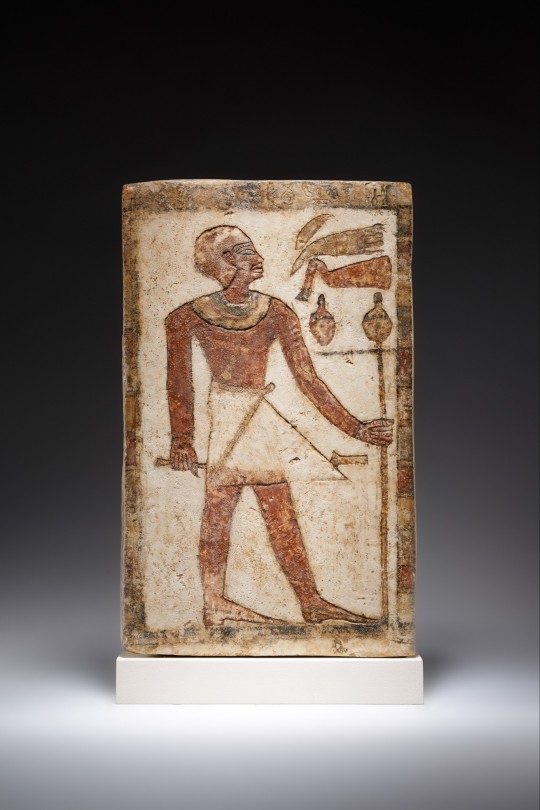
~ Stela of a Man.
Period: Middle Kingdom, 11th Dynasty
Date: ca. 2030–1981 B.C.
Place oforigin: Egypt, Upper Egypt, Thebes, Deir el-Bahri, Cemetery 100, Tomb TT 114, MMA excavations, 1926–27
Medium: Limestone, paint
#ancient#ancient art#history#museum#archeology#ancient egypt#ancient sculpture#ancient history#archaeology#egyptian#egyptology#Egypt#stela of a man#11th Dynasty#middle kingdom#thebes#ca. 2030 b.c.#ca. 1981 b.c.
637 notes
·
View notes
Text

so. around the start of august, I decided to make a story to work on when I wanted to just kind of turn my brain off for a minute. you know, everything is so much all the time, let's lower the stakes and draw some ancient greeks wrestling.
unfortunately for ME, I thought: well what if we explored the peloponnesian war through the sword and sandals genre and throw in a splash of horror for seasoning! then I thought: well it wouldn't be fun for me if I didn't do some reading on the history of it all. what I do I know about ancient greece. I have a fistful of pocket lint and loose change in that department.
folks. there is so much reading. my reading list is only a handful of books, but each of those books is a fucking brick.
anyway, it's still primarily a For Fun story I do in my spare time, so some wrestling sketches, and some other kind of scene :)
⭐the one with the beard is klaudios, the one with the longer hair is damonikos!
#some people may say 'what about your obsession with the thebaid?' that's latin literature baby#we are several centuries past ancient greece with that one#well. that's not entirely true. I love oedpius and thebes. love thebes! reading a book about thebes right now actually!#and. klaudios is ALSO from lakedaimon. the situation is messy. he's lived most of his life in Anywhere But There (currently Athens)#but he's being a huge dick about it like pal that's ALSO your home state. easy off the throttle just a bit. we are throwing#stones in glass houses here#original tag
252 notes
·
View notes
Text
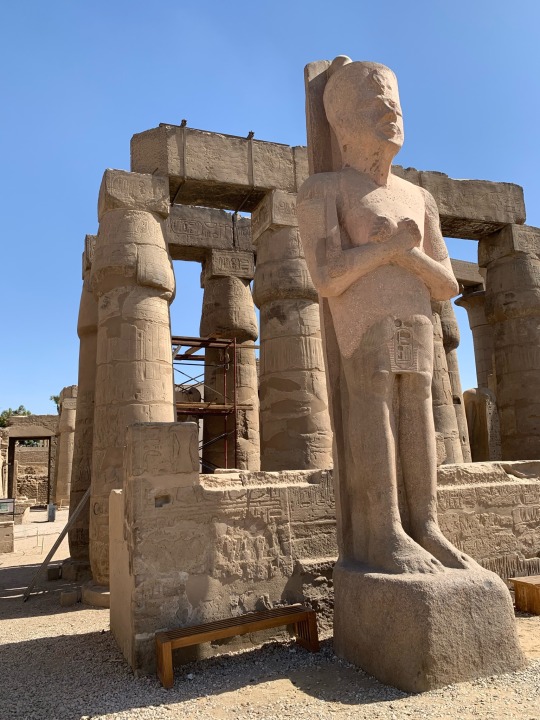
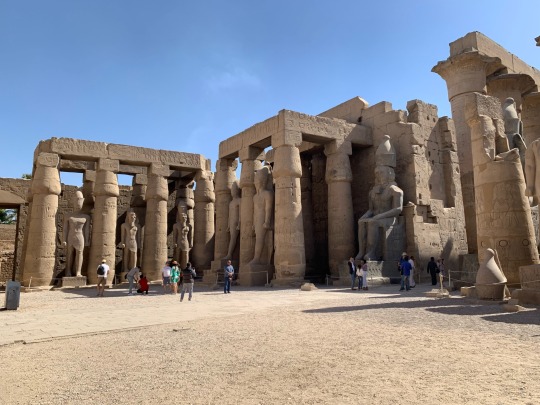
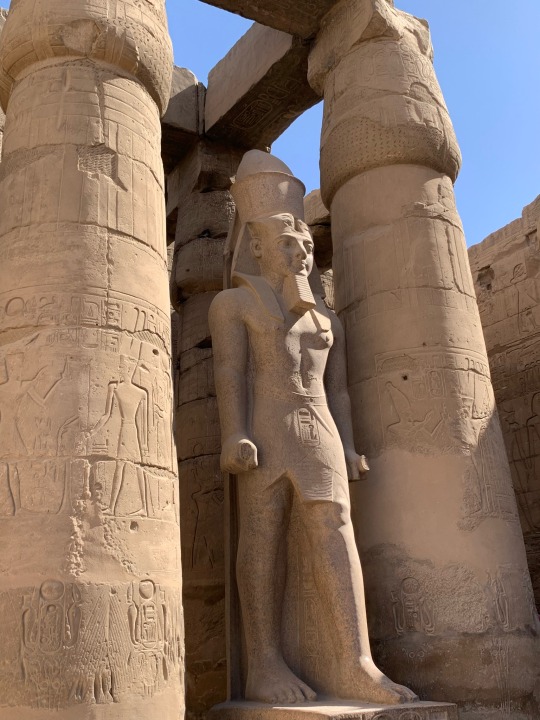
Luxor Temple, March 2023
#Luxor#temple#Thebes#waste#Egyptian temple#Egyptian#Egypt#ancient Egyptian#ancient Egypt#Kemet#Kemetic#Kemeticism#ramesses ii#pharaoh#Egyptian pharaoh
486 notes
·
View notes
Text
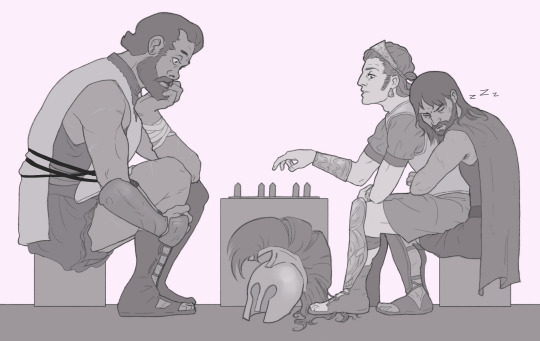
guys against thebes can be found in sizes large, medium and small
i.e. hippomedon and polynices play a game of polis while tydeus takes a nap (he's not allowed to play board games anymore after what happened last time)


#hippomedon is described as giant while tydeus is famously short. i assume polynices is average bc no one ever mentions his height#also everyone's used to polynices and tydeus being weird and intense and clingy with each other. just another day in camp#this was inspired by every lovely piece of ancient greek pottery depicting ajax and achilles playing games#the thebaid#theban cycle#epic cycle#seven against thebes#tydeus#hippomedon#polynices#polyneices#polyneikes#tagamemnon#my art#slettart#greek mythology
108 notes
·
View notes
Text
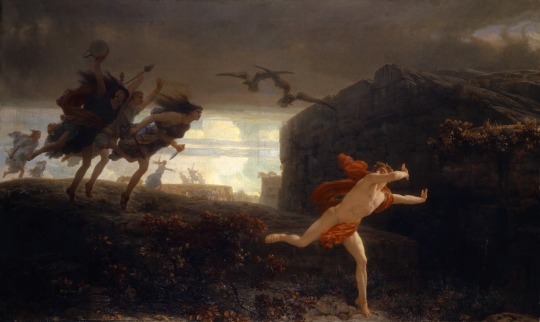
Pentheus Pursued by the Maenads by Charles Gleyre
#pentheus#maenads#greek mythology#art#charles gleyre#tragedy#ancient greek#ancient greece#dionysus#euripides#the bacchae#thebes#king#mythology#mythological#europe#european#history
301 notes
·
View notes
Text
Tydeus, Son of Oeneus, father of Diomedes....who fell in the war of the Seven Against Thebes. They all know how you died...
...in a desperate, dying frenzy eating the brain of your enemy; immortality denied. They know how you, as exile, came to Argos and married a daughter of the king, like Polynices, son of Oedipus. And how you soon joined your brother-in-law on his doomed quest to claim his rightful place on the throne of Thebes. How you, as envoy, tried for peace - denied, yet defeated Thebes once? twice? over. In friendly games, then betrayed: fifty against one in nightly ambush against you. Hope for peace was lost. They know how you died in that war, and how your armies failed to take Thebes...and failed even more to reclaim your own throne. They know how your son swore an oath to avenge you. And how ten years later, he, and the other sons of the fallen Seven, warred once more against Thebes; victory on their side. And how your son joined the armies sailing for Troy and how he gained immortal fame.
But who ever asks: "Where did this man come from?", "What lead this man into exile?" Who ever tries to understand?
Well, I shall try, with what I've been given, to tell your tale, and hope to do it justice.
Cursed house of Parthaon, destroyer, son of the god of war. Sons of Parthaon doomed to war each other - outright, and in secrecy - in a frenzy for rulership, a doomed house of fathers who would soon learn to bury their sons. A curse? (What did you do to deserve this fate, I wonder? Or was it simply your ancestors love for bloodshed, that would grant you all this suffering?) Doomed house of Oeneus, in your childrens veins the blood of War ran twice over.
Im starting early in the tale, long before great-hearted Tydeus was born. But you have to know, so you understand in what haunted house Tydeus grew up in, why he became an exile, why he choose the Theban war……
So instead of with you, Tydeus, we will begin our tale with your father Oeneus, son of Parthaon. His two brothers, Melas and Agrius, they have always envied his rule over Calydon, which he secured through his marriage to Althea, (his cousin once removed, descenant of Ares) the daughter of Thestius of Pleuron. Thestius, too, was the father of Leda, mother of Helen, for whom the Trojan war was fought.
Now often have there been wars between Calydon and the Curetes of Pleuron, and for now there was peace. And you Oeneus, you let Dionysos into your house, and turned away your gaze when he caught the attention of your wife and so Deianira was born, (He gifted you a vine for it, and showed you how to plant it.) and Meleager was born to you too, beloved by Ares - cursed to die, when the wood in the fire during his birth was burned.
But then you forgot Artemis in your sacrifices, and she sent you the Calydonian boar, and you called the heroes to defeat the beast. And Atalanta drew first blood. And Meleager killed it and offered its skin as reward to Atalanta. And the brothers of Althea, scorned to hunt with a woman, tried to claim the boar skin for themselves, so in a burst of anger Meleager killed them. And there was war between Calydon and Pleuron & Olenus close by got dragged into it, too. (Olenus: place of birth of Capaneus, who did not stay, but left for Argos scorning his fathers weakness, who would join the Seven Against Thebes, and who would die, blasted by a lighting bolt of Zeus)
And Meleager refused to fight in the war he started, so the war came to the doors of Calydon and nearly the city was sacked. And all his brothers died in that war. And yet he refused to fight, until they begged him. Then he went to war and fended off the armies and fought his way almost all the war to Pleuron with Ares, victory was on his side, when Althea, scared that he would now kill her father too (not just her brothers) burned the wood that held Meleagers life. And Meleager died. And Althea, in horror of what she had done, hung herself. And Meleagers sisters mourning never ceased, and they were turned to birds. Now all but two of Oeneus' children remained: Gorge, and Deianira. And yet the war was not over.
So, begrudgingly - for he feared to loose these, his last children, too - he gave Gorge as wife to Andraemon, a king of Aetolia (was the city he ruled Pylene? Or another nearby?) in return for his miliary support.
And they defeated Pleuron, and Oeneus appointed his brother Agrius to govern the city. And with the thread of Andraemons forces, as well as Calydons, Olenian Hipponous, father of Capaneus and Periboea, sought for peace. Here Oeneus was a guest in Hipponous' halls, and he lay with his daughter Periboea, unknown to all. And Capaneus left the city, in scorn for his fathers refusal of war - he would find a loyal wife and forces in Argos.
Now Oeneus and Hipponous reached an agreement for peace, and Oeneus returned to Calydon. And Deianira married Heracles - Oeneus was relucant to let her go, the last child in his house. But now Periboea was pregnant, and rumor said she had lain with Hippostratus, but she claimed that it was Ares who had joined her bed, though she knew the childs true father. Knowing that Oeneus was bereft of wife and male issue, Hipponous send her, in the end, to Calydon. As price of honor, a peace offering. Trusting that her tales of Ares' involvements would be enough to keep the peace between their cities: for Oeneus lacked a male heir now. And Oeneus took Periboea as wife, and she gave birth to Tydeus, Oeneus' true son. (Did Hipponous suspect? Or was it luck or fate or godly intervention?)
A few years later Olenias was born, younger brother to Tydeus. They grew up in Calydon, the home haunted by the ghosts of Meleager and his brothers who still burned in the memories of their father and the wailing of their bird-sisters could still be heard in the winds. And Melas, brother of Oeneus, and his sons, still envied Oeneus‘ throne, for why had Agrius received a city but not he? Still…the children matured: Tydeus reaches stern adulthood. He was impulsive, and loud and full of life, and somehow he filled the emptiness his dead siblings had left behind, he loved sparring and hunting in the woods, he was fierce and quick to make friends and quick to anger, and quick to forgive those he loved and loyal to his family and country. His little brother was eager to follow after him, striving to be just like him, he was not yet a man, but had nearly left boyhood behind. Both of them were eager to prove themselves.
One day, Tydeus and Olenias went hunting. The Calydonian boar was dead, but there was still plently other game in the woods. They hunted in the forest between Pleuron - their uncles abode - and Calydon. Daring? Sure. Did their parents know they were out alone hunting? Probably not. They were traveling to Pleuron, hunting on their way there. They found their prey. Olenias drew first blood, Tydeus dealt the death blow. And as Tydeus skinned the boar Olenias wandered off.
Night was fast approaching and as fate would have it, the sons of Melas were hunting in the very same forest of their uncle…or maybe they knew the sons of Oeneus were traveling alone. They had not forgotten their fathers desire for the throne. Their own. And doomed Olenias ran into them, as he lost his way in the dark and they convinced him to join their hunt. Its dangerous alone in the forest, don’t you know? Especially so late at night, so they said to him. They promised to help him find Tydeus, once they hunted their game, they knew it was close by…Innocent, unfortunate youth. He trusted them, for his cousins had always treated him fairly before. He could not have known the darkness of their hearts, the plan they formed in brotherly silence the second they saw him stumble through the thicket. Olenias could not have known that they planned to take him to force his father off the throne (wasn’t it easier to string a lie to have the young boy follow them willingly, rather than kidnap him by force?) Little did Olenias know that the game his cousins hunted for was not a boar, not an animal at all, but his older brother: Tydeus, heir of Calydon.
He, in the meantime was looking for Olenias, concerned for his safety in the dark forest. He carried the boar skin on his back, which he had planned to gift to Olenias. After all, it had been the first time his brother had drawn a games blood. But in the rush of the hunt Tydeus had lost track of time. He should have been more careful, he knew, and now he searched for his younger brother.
Melas' sons found him first.
Eight against one, they ambushed him, and Tydeus defended himself, recognizing his cousins and knowing within a heartbeat their reason for the attack, their jealousy that had long been brewing - his anger rose and he killed every one of them, proving himself, but at what cost? - not knowing the brother he had been searching for was in their midsts; confused and caughed unawares by the fray. When the ninth body dropped to the ground, Tydeus stormed to Pleuron where he faced off Agrius, yelling about the ambush, fury born of bitter betrayal driving him into a rage. Yet all the while he kept looking around the halls, expecting to find his brother already there, having found safety in the halls. Upon hearing the news, Agrius however had his heart already fixed on the throne of Calydon, secretly gleeful and his brother Melas' unlucky lot. Tydeus saw the gleam of triumph in the eyes of Agrius, so alike to the one gleaming in the eyes of Melas' sons. So Tydeus asked the men to find the bodies of the men he had slain, to prove his point, and to demand justice for himself. And that they did. Carrying nine bodies, one of them still breathing - barely. Tydeus upon catching sight of his brother Olenias, let out a frightened cry. He tried to rush to Olenias, but they held him back from his brothers still bleeding side. Olenias, barely holding on to life's light, noticed Tydeus and his mouth formed words that did not escape his lips, reaching out with his blood-covered hand. But the youngest prince of Calydon lost his strenght before Tydeus could fight off the grip of the men that held him down, before he could fall down at his side to plead for his forgiveness and before he could ask how he ended up in the fray. Even before Olenias stops breathing Agrius now already demanded Tydeus' exile. Tydeus…oh Tydeus, fratricide unwilling, who would believe you now? Did you not also slaughter the sons of your uncle, all of them, in a single night? And before the words declaring exile were even spoken, Tydeus turned and ran, leaving the gated halls of Pleuron and Calydonian woods behind - to atone for his brothers murder, that was the customx, horror and guilt drove him forth - but there was rage boiling in his gut, for he knew the ambitions of his fathers brothers. Yet he left as exile, deep in his heart set to be back to take his kingdom when the time came. Leaving Aetolia behind, he wandered through Achaea and Arcadia for months, never quite able to escape the haunting image of his brother dying in his arms, a life he took. The only thing Tydeus carried with him when he left was what he'd been wearing, his weapons, and the boar hide. He kept the boarskin for himself. Unlike Meleager, he would not go to war for it, but instead he carried it, a memory of his brother. A memory of his sin. Eventually Tydeus would reach Argos - he had lost track of time, of himself - the heavy boar hide on his back a steady reminder of what he’d done. And then he met Polynices, an exile who also suffered betrayal, and was denied his right to the throne, who was haunted by his family's ghostly sins.
But Agrius, rid of Tydeus for now waited patiently until Andraemon, son-in-law to Oeneus, had his attention elsewhere since he could involve himself in war on behalf of his father-in-law if Agrius acted too soon. The ruler of Pleuron did not have to wait for long. Tydeus called to arms from Argos to march against Thebes. And they followed his call. And when news arrive from Thebes, Agrius rejoiced. Now he had free reign. Tydeus, the exile, last potential threat and beloved prince of Calydon was dead. Their troops suffered many losses. Oeneus was utterly defeated - again bereft of children. And now nothing was standing in Agrius‘ way.
So he deposed Oeneus, and while the Aetolian region was united when Tydeus called to arms, it was in friendly alliance and love and loyalty for their prince. But now Agrius ended up seizing Calydon from Oeneus, and Olenus too.
He let Andraemon keep his his city. But now he was not able to fight Agrius for the rest of Calydon and help his father-in-law. At this point Agrius has more influence and forces than him, a war only a fool would start. So Agrius rules over Calydon and its surrounding regions...
…until Diomedes comes, son of Tydeus, still heady with victory over Thebes, new king of Argos, marches to Aetolia, his goal to free his grandfather from imprisonment. He joins forces with Thoas, son of Andraemon, and they defeat Agrius - most of his sons are slain and he ends his own life when he is exiled, the sons of Porthaon now all know the loss of their children - and they free Oeneus. And Diomedes hands the throne Thoas. Andraemons son now rules over Calydon and the regions Agrius held, as well as the ones Andraemon had kept, the ones who had remained loyal to Oeneus. And with these Thoas will match against Troy, and Diomedes, with his own forces will join the war and bring victory for the Achaeans.
///
Thanks again to @lyculuscaelus @holy-mother-of-whumpers and @akaittou for helping me dig through the research and make sense of all the sources for Tydeus as well as figuring out the family trees, political and geographical relations as well as the details for Tydeus' exile ♡
#tagamemnon#diomedes#tydeus#ancient greek mythology#seven against thebes#theban cycle#idk how to tag this#>:D if anyone notices any plotholes or inconsistencies lmk#this should be compatible with the iliad and thebiad and partially some of the greek plays and other sources as well
42 notes
·
View notes
Text
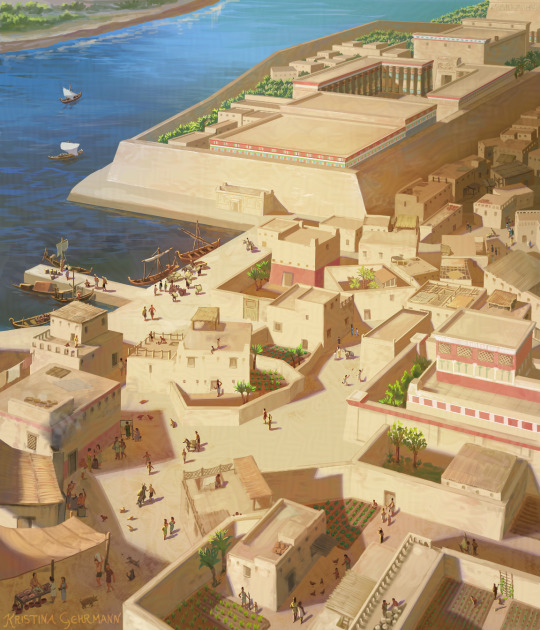
New illustration! A view of ancient Thebe east of the Nile, with the Karnak temple complex. Drawn for a childrens' nonfiction book.
Client: Noordhoff
#digital illustration#history#ancient egypt#ancient history#thebe#luxor#karnak#egyptian#book illustration
123 notes
·
View notes
Text
Canopic Chest of Tutankhamun (1342-1324 BC)

New Kingdom, late 18th Dynasty, from the Tomb of Tutankhamun (KV62), Valley of the Kings, West Thebes, Luxor, Egypt.
—
Canopic chests are cases used by ancient Egyptians to contain the internal organs removed during the process of mummification.
Once canopic jars began to be used in the late 4th Dynasty, the jars were placed within canopic chests.
Although the first proven canopic burials date from 4th Dynasty reign of Sneferu, there is evidence to suggest that there were canopic installations at Saqqara dating from 2nd Dynasty.
The first canopic chests were simple and wooden, but as time went on, they became more elaborate.
Then, around the 21st Dynasty (1069–945 BC), Egyptians decided to leave the viscera inside mummies.
But because they had been using canopic chests for thousands of years, they kept putting them in tombs, just without anything in them.
Canopic chests fell out of use during Ptolemaic Kingdom.
The style and materials were different at different times, though always reflected Egyptian ideal of perfectly measured and precise beauty.
This alabaster canopic chest of Tutankhamun is considered to be one of the finest masterpieces of King Tut’s collection.
The interior of the chest is divided into four compartments, each with a cylindrical hollow covered by a lid elegantly carved in the form of the king’s head.
At the four corners of the chest, carved in high relief, are four goddesses: Isis, Nephthys, Neith and Serket — who stretch out their arms to protect the contents of the chest.
Each of the four compartments of the canopic chest held a miniature coffin. Covered in linen, they stood upright in their cylindrical compartments.
Each was almost glued to the bottom owing to the hardening of the unguents that had been poured in as part of the ritual.
It was the duty of the goddess Nepthys, whose name is inscribed on the front, to protect the lungs of Tutankhamun, which were placed inside, after first being preserved.
The figure, fashioned of solid beaten gold, contains inlays of colored glass and semiprecious stones.
It is very close in design to the second coffin in which Tutankhamun was buried; in fact, it is almost a miniature version.
📍 Egyptian Museum, Cairo (JE 60687)
#canopic chests#mummification#internal organs#ancient egypt#canopic jars#Sneferu#Tutankhamun#King Tut#Isis#Nephthys#Neith#Serket#miniature coffin#Nepthys#Egyptian Museum#Cairo#Egypt#burial#ritual#afterlife#Tomb of Tutankhamun (KV62)#Valley of the Kings#West Thebes#Luxor
27 notes
·
View notes
Text
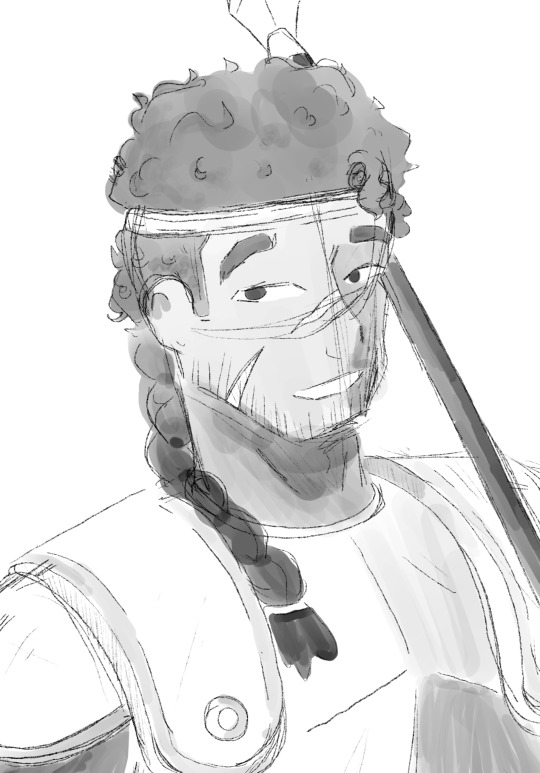
Diomedes, King of Argos
#diomedes#troy#trojan war#art#artists on tumblr#drawing#greek mythology#homeric epics#iliad#the iliad#the odyssey#odyssey#mythology#sketch#tagamemnon#argos#7 against thebes#thebes#tydeus#ancient greece
72 notes
·
View notes
Text
Fundamental sources
Greek mythology is recorded in numerous texts, covering multiple centuries, locations, traditions and variations. Many of these ancient sources are lost to us, or fragmentary. This leaves us with an incomplete (albeit vast) and oftentimes incoherent collection of written sources on which to base my own work.
The sources which are considered by the ancient Greeks themselves as foundational and central to Greek mythology are essentially : the early Greek epic poets (amongst which is, of course, Homer), Hesiod (author of the famed Theogony, not counted as an epic poet) and the Homeric Hymns (called Homeric because they are written in the same language, style and meter as the Iliad and Odyssey). These texts were written down between the 8th and the 5th centuries BC, and are based on oral material that goes much further back.
Of the early epic poems, only the Iliad and the Odyssey attributed to Homer still survive, considered by the ancient Greeks as the pinnacle of their literature. Of all the other epics, only fragments and (if we're lucky) summaries remain. The Trojan Cycle was made of the following works :
The Cypria, which describes the origin and early years of the Second Trojan War
The Iliad, which tells of the wrath of Achilles and the death of Hector
The Aethiopis, which describes the intervention of Amazons and Ethiopians in the war, and the death of Achilles
The Little Iliad, a dense work that covers events from the funeral of Achilles to the episode of the Trojan horse
The Sack of Troy, which, as its title suggests, tells the events from the Trojan horse to the desctruction of the city and the anger of Athena
The Return from Troy, in which the Greek heroes return home, with tragic developments, such as the murder of Agamemnon and the revenge of Orestes
The Odyssey, tells the return of Ulysses, the longest and most adventurous return of all Greek heroes
The Telegony, that covers further adventures of Ulysses until he is killed by Telegonus, his son by Circe
To this we can add a Theban Cycle (covering the life of Oedipus, both Theban Wars and the revenge of Alcmaeon) and a few additional epics (including a Titanomachy I would have loved to read). Chances are high that there were many more, lost to us even by name.
Hesiod left us three complete works and a number of fragments, the most important of which is the Theogony, which describes how the universe began and the early history of the gods.
Lastly, the Homeric Hymns, of which three may be later additions, are poems or songs that praise the gods, each hymn being dedicated to a specific god.
In the context of my work, these sources will be taken as having the highest authority. Later sources will be accepted if they provide additional material that completes or extends the earlier texts, or if they help resolve an obvious inconsistency or impossibility.
#troy#ancient greece#classical mythology#greek gods#greek heroes#greek mythology#mythology#trojan war#thebes#epic cycle#homer#hesiod#homeric hymns
82 notes
·
View notes
Text
I think what gets me about Chrysippus’s story is how realistic it is, Laius wasn’t a stranger he was his tutor, most cases of sexual abuse are done by ppl the victim is close to like friends and family, Laius was a family friend, Pelops trusted him to take care of Chrysippus. It’s also heavily implied that Chrysippus was groomed before his kidnapping and even after he was rescued Chrysippus’s still defended Laius since he was a child who didn’t understand he was being abused.
23 notes
·
View notes
Text
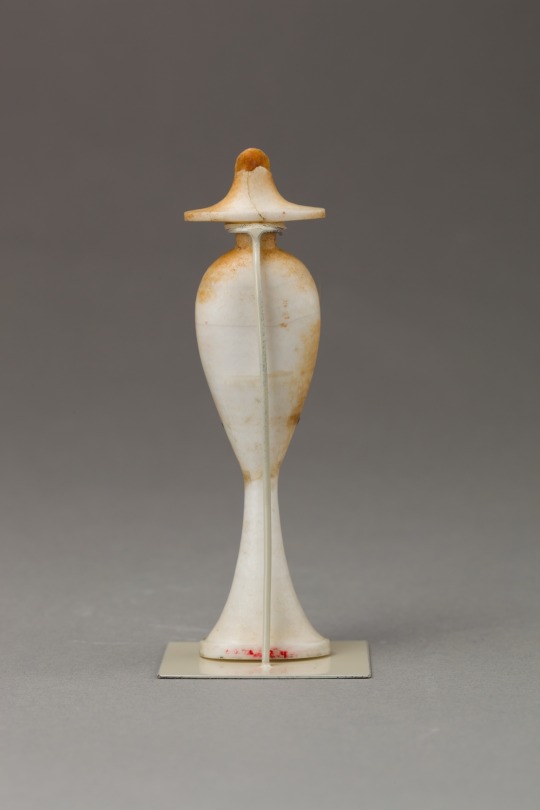


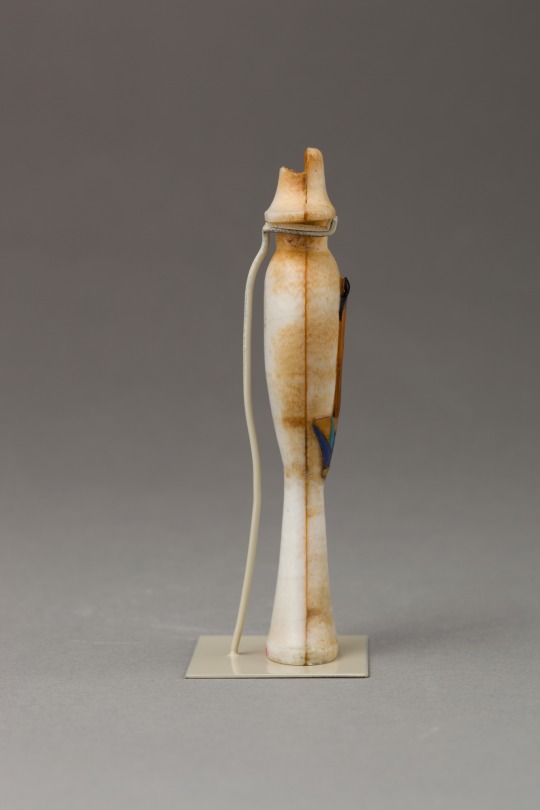
~ Perfume bottle in the shape of a hes-vase inlaid with the figure of a princess.
Period: New Kingdom, Amarna Period; 18th Dynasty; Reign of Akhenaten
Date: ca. 1353–1336 B.C.
Place of origin: Egypt; Possibly from Upper Egypt, Thebes
Medium: Travertine (Egyptian alabaster), carnelian, obsidian,gold, and colored glass inlay.
#ancient#ancient art#history#museum#archeology#ancient egypt#ancient history#archaeology#egyptology#egyptian#egypt#perfume bottle#hes-vase#princess#amarna period#18th dynasty#new kingdom#Akhenaten#thebes#ca. 1353 b.c.#ca. 1336 b.c.
788 notes
·
View notes